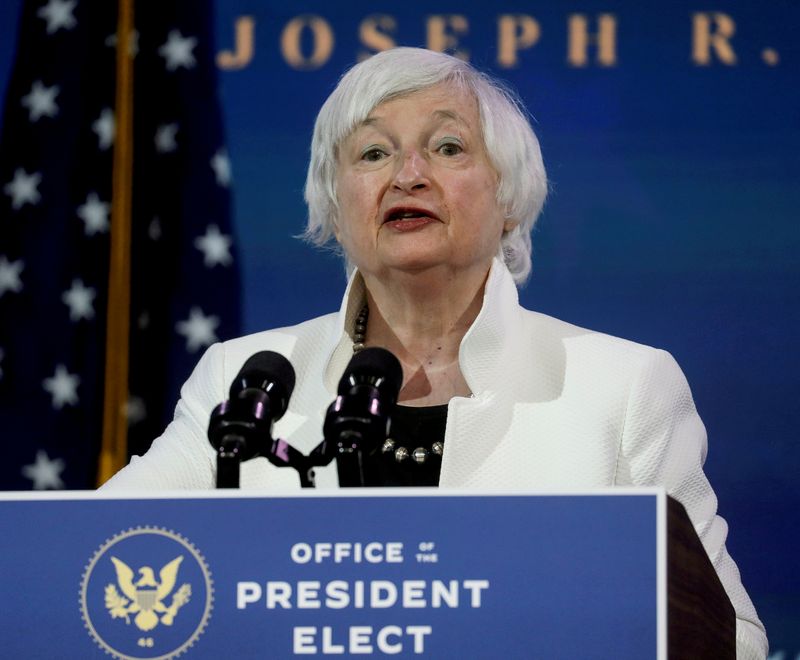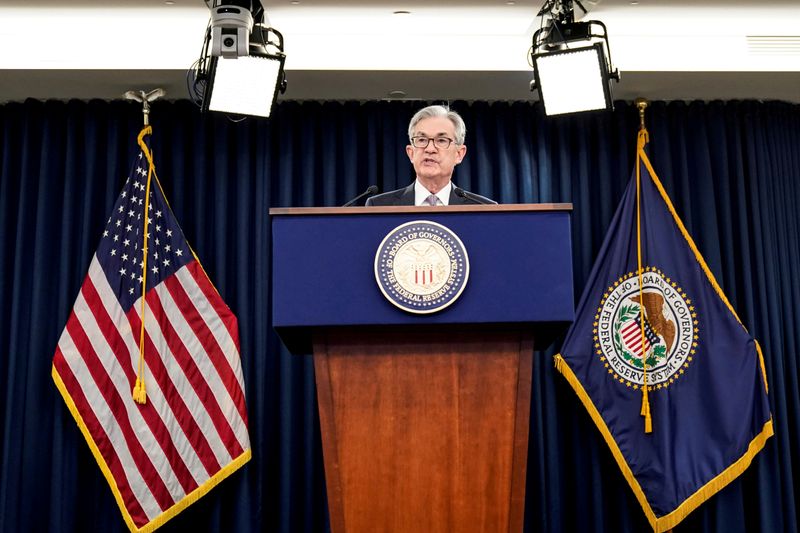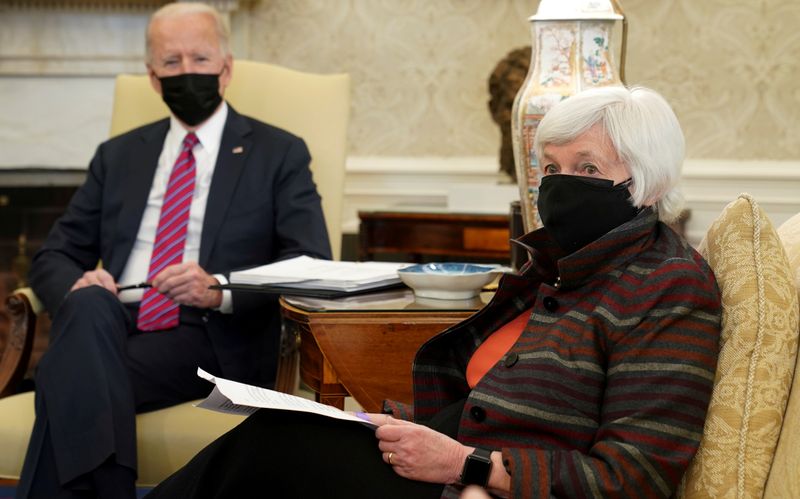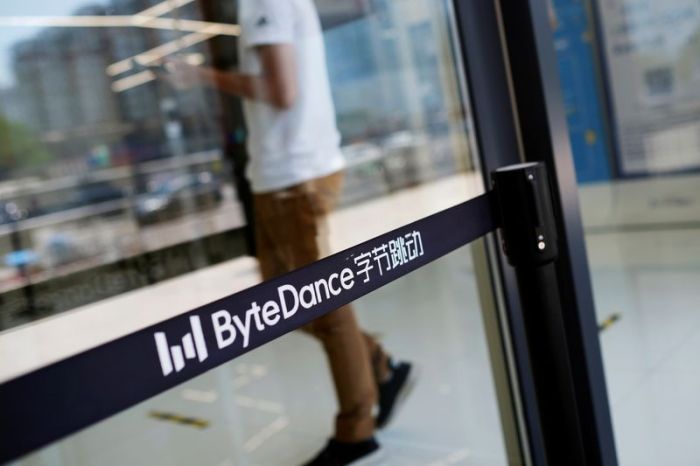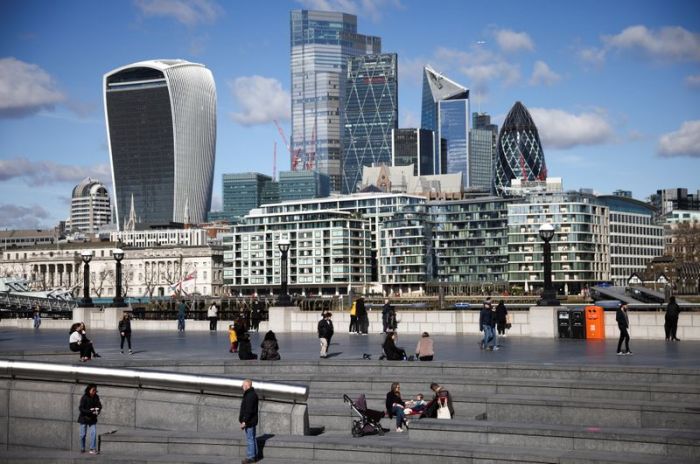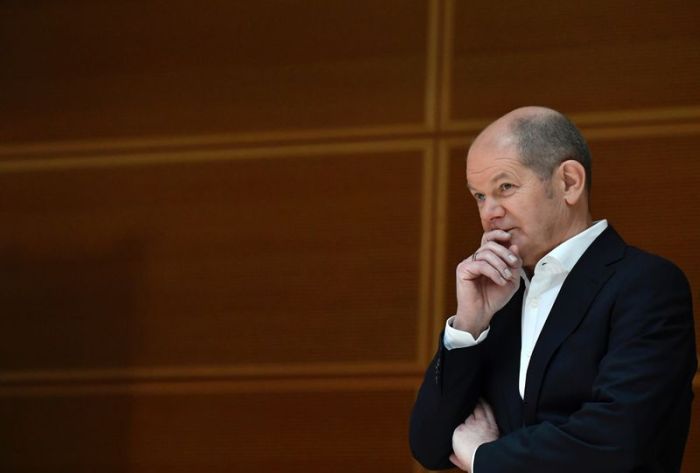WASHINGTON (Reuters) – Treasury Secretary Janet Yellen said on Tuesday the U.S. economy remains in crisis from the pandemic even as she defended developing plans for future tax increases to pay for new public investments.
Yellen spoke at a hearing of the House Financial Services Committee that was ostensibly to discuss the country’s recovery from the coronavirus-triggered recession, but turned instead into a skirmish over priorities far beyond it.
Republican members of the committee challenged Yellen and Fed Chair Jerome Powell on issues like plans to build climate change into financial regulation, and specifically quizzed Yellen on how the United States can simultaneously be in crisis and healthy enough to consider raising taxes.
The immediate hole remains deep, Yellen said, with “a huge problem of joblessness” following the loss of employment due to the pandemic.
“But once the economy is strong again President Biden is likely to propose that we engage in long-term plans to address longstanding investment shortfalls…in infrastructure, investment to address climate risk, investments in people, R&D, manufacturing,” she said. “It is necessary to pay for them.”
One possibility is boosting the corporate tax rate back to 28% and fixing a “global race to the bottom” in what companies pay.
It was the latest in a series of quarterly hearings held by the committee to take stock of the coronavirus economic response, but the sessions have become increasingly open-ended affairs with members asking about issues from China’s role at the International Monetary Fund to accounting rules.
On the broad economic environment, Powell downplayed concerns of some lawmakers about the possibility of coming inflation as the Fed’s loose monetary policy coincides with an economic reopening expected to spark the strongest growth since the 1980s.
“We do expect inflation will move up over the course of the year,” but it will be “neither particularly large nor persistent,” Powell said in testimony after some members said they were concerned about rising prices.
“We have the tools to deal with that” if it becomes a problem, Powell said.
The U.S. economic recovery is evolving faster than expected, but still faces risks from the coronavirus pandemic on one side and potential inflation on the other as massive fiscal support rolls through the system.
The federal response to the crisis, including spending of about $5 trillion and massive support from the central bank, set the stage for a rebound now taking hold as the COVID-19 vaccination program gains momentum and pandemic restrictions are lifted.
However, it remains unclear how quickly millions of still-unemployed workers will find their way back to jobs, whether the Fed can keep markets on an even keel amid rising prices and bond yields, and if initial progress against the pandemic can be sustained.
ECONOMIC OPTIMISM
In testimony released ahead of the hearing, Yellen repeated an optimistic view that the U.S. response, including the Biden administration’s $1.9 trillion relief package that was passed this month, could get the country back to full employment by next year.
“I am confident that people will reach the other side of this pandemic with the foundations of their lives intact. And I believe they will be met there by a growing economy. In fact, I think we may see a return to full employment next year,” Yellen said.
The current U.S. unemployment rate of 6.2% is far above the multi-decade lows of around 3.5% reached before the pandemic, and statistical surveys during the crisis may understate the true level. The economy is about 9.5 million jobs short of where it was in February 2020.
Still, Fed officials including Powell expect job growth to accelerate in coming months as life returns to normal and a wide variety of businesses, from restaurants to amusement parks, begin to reopen and restaff their workforces.
“The recovery has progressed more quickly than generally expected and looks to be strengthening,” Powell said in his opening statement.
Yellen and Powell are scheduled to appear before the Senate Banking Committee on Wednesday.
(Reporting by Howard Schneider; Editing by Paul Simao and Andrea Ricci)

